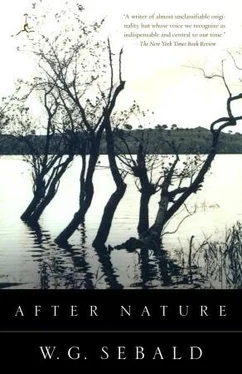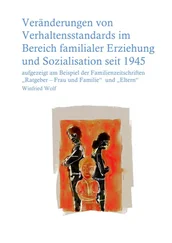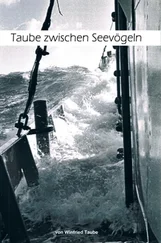the kettle drummer of Niklashausen
had roused the people with promises
of earthly happiness for the poor.
Fifty thousand daily had thronged to him,
his prayer chapel filled with precious
donations and this had gone on for a while,
but then as a spectacle to the rabble
he had been roasted in Würzburg.
Already I can see, he resumed,
under the rainbow arching
over the land, the horsemen
advance from their camp.
Brothers, he said, when they were walking
along the Windsheim woods,
I know that the old coat is tearing
and I am afraid
of the ending of time.
In mid-May, when Grünewald
with his carved altarpiece had
returned to Frankfurt, the grain
whitening at harvest-time,
the whetted sickle passed
through the life of an army of five thousand
in the curious battle of Frankenhausen
in which hardly one horse soldier fell
but the bodies of peasants piled up
into a hecatomb, because,
as though they were mad,
they neither put up any resistance
nor took to their heels.
When Grünewald got news of this
on the 18th of May
he ceased to leave his house.
Yet he could hear the gouging out
of eyes that long continued
between Lake Constance and
the Thuringian Forest.
For weeks at that time he wore
a dark bandage over his face.
With the painter on horseback,
sometimes, too, high up on the cart
sits a nine-year-old child,
his own, as he ponders in disbelief,
conceived in his marriage to Anna.
It is a most beautiful ride, this last
in September 1527, along the riverside
through the valleys. The air stirs the light
between the leafage of trees, and from the hillsides
they look down on the land extending around them.
At rest, leaning against a rock, Grünewald
feels inside himself his misfortune
and that of the water artist in Halle.
The wind drives us into flight
like starlings at the hour when
the shadows fall. What remains to the last
is the work undertaken. In the service of
the family Erbach at Erbach, Grünewald devotes
the remaining years to an altar work.
Crucifixion again, and the lamentation,
the deformation of life slowly proceeds, and
always between the eye’s glance
and the raising of his brush
Grünewald now covers a long journey,
much more often than he used to
interrupts the execution of his art
for the apprenticing of his child
both in the workplace and outside in the green country.
What he himself learned from this is nowhere reported,
only that the child at the age of fourteen
for no known reason suddenly died
and that the painter did not outlive him
for any great length of time. Peer ahead sharply,
there you see in the greying of nightfall
the distant windmills turn.
The forest recedes, truly,
so far that one cannot tell
where it once lay, and the ice-house
opens, and rime, on to the field, traces
a colourless image of Earth.
So, when the optic nerve
tears, in the still space of the air
all turns as white as
the snow on the Alps.
AND IF I REMAINED BY THE OUTERMOST SEA
. . Immer steigender hebst,Woge, du dich!
Ach! die letzte, letzte bist du! das Schiff geht unter!
Und den Todtengesang heult dumpf fort,
Auf dem großen, immer offenen Grabe der Sturm!
. . Higher and higher, billow, you rise!
Ah, you’re the last, the last! the ship’s going down!
And muted, over the grave yet open and huge,
Still the gale howls its death-chant, its dirge.
Friedrich Gottlieb Klopstock, “The Worlds,” Feb. 1746
Georg Wilhelm Steller
born at Windsheim, in Franconia,
while pursuing his studies
at the University of Halle
repeatedly came across news
items in journals
that the Russian Czarina,
in the course of her empire’s expansion,
was preparing an expedition on an unprecedented scale
under the supreme command of Vitus Bering
to the Pacific coast, so that
the sea route from there to America
should become known.
Visions of this voyage of discovery,
Steller later recorded, had so seized
his imagination that he, the son
of a cantor, gifted with a
fine tenor voice and furnished
with a bursary for true Christians,
having abandoned Wittenberg and
theology for natural science,
could now, during his doctoral
disputations, which he passed
with the highest distinction,
think of nothing other than
the shapes of the fauna and
flora of that distant region
where East and West and North
converge, and of the art and skill
required for their description.
Although it was said that the authorities
would appoint him in the near future
to the Chair of Botany and so
accredit him to society,
Steller, without means though he was,
and with scarcely more than his notebooks
in his pocket, on the very day
after the Rigorosum set out in the
mail coach to the city of Danzig,
then occupied by Russian troops,
where he signed on as a medical assistant
on a packet-boat that was
to carry some hundreds
of invalids back to Russia.
When the ship sailed out of Danzig Bay,
Steller, who had never yet confronted
the sea, stood on the deck for a while,
wondering at the passage
over water, at power and weight,
at the salt in the air and
the darkness pushed down to the deep
under the keel. To the left,
the outermost point of the Putzig spit,
to the right, the headland
fronting the Frische Haff,
a pale grey streak endlessly
merging into a still paler grey.
This behind him had been Germany,
it occurred to him, his childhood,
the woods of Windsheim;
the learning of ancient languages,
protracted throughout his youth
perscrutamini scripturas,
shouldn’t that read,
perscrutamini naturas rerum?
Kronstadt, Oranienbaum, Peterhof
and last in the Torricellian void,
a thirty-four-year-old bastard,
marooned on the Neva’s marsh delta,
St. Petersburg under the fortress,
the new Russian capital,
uncanny to a stranger,
no more than a chaos erupting,
buildings that began to subside
as soon as erected, and nowhere
a vista quite straight. The streets
and squares laid out according
to the Golden Section, jetty walls and bridges,
alignments, façades and rows of windows—
these only slowly come towards us
out of the future’s resounding emptiness,
so as to bring the plan of eternity into the city
born of the terror of the vastness of space,
overpopulated with Armenians, Turks, Tatars,
Kalmucks, immigrant Swedes,
Germans, French and the tortured-to-death,
mutilated corpses of criminals hung
all down the avenue on exhibition.
On the other side of the river, in the famous
botanical gardens of the Marine Hospital
Steller escapes the city’s bustle.
Neatly he walks the paths
between the flowerbeds, marvels at
the hothouses, filled with tropical plants,
learns one new name after another
and is almost beside himself
with so much hope
Читать дальше












